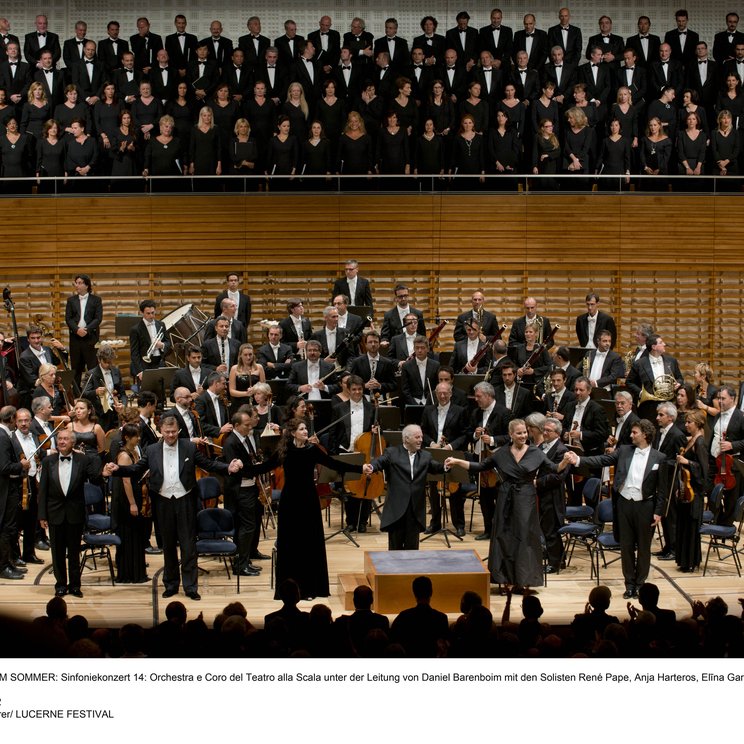
Orchestra e Coro del Teatro alla Scala
Vita
The glorious history of La Scala in Milan began on 3 August 1778, when the house gave its inaugural performance of Antonio Salieri’s Europa riconosciuta. In the first 75 years of its existence, the Orchestra del Teatro alla Scala was ordinarily led by its concertmasters—until 1854, when Alberto Mazzucato first took up the baton to guide the ensemble as a conductor in the modern sense. In 1871 Franco Faccio was appointed the company’s first Music Director, and in 1887 he led the world premiere there of Verdi’s Otello. Among his successors have been Arturo Toscanini, who was responsible for the ensemble from 1898 to 1908 and from 1921 to 1929, Tullio Serafin (1909–1918), Victor de Sabata (1930–1953), Carlo Maria Giulini (1953–1956), Claudio Abbado (1968–1986), and Riccardo Muti (1986–2005). Daniel Barenboim, who had already developed a relationship with the company as “Maestro Scaligero” in 2007, took over leadership of the chorus and orchestra in 2011. No less prominent is the roster of guest conductors, which has included such great figures as Wilhelm Furtwängler, Herbert von Karajan, Leonard Bernstein, and Carlos Kleiber. Today La Scala’s orchestra engages 135 musicians, giving a special emphasis to a well-rounded, warm, and finely balanced sound. A substantial component of the company’s reputation is also due to the contributions of the Coro del Teatro alla Scala, which has been led by Bruno Casoni since 2002. Along with its opera performances, the chorus also appears in symphony and a cappella concerts, performing a repertoire spanning from Carlo Gesualdo to contemporary works. A centerpiece of their artistic work since 1874 has included regular performances of the Verdi Requiem, which the ensembles of La Scala in Milan have presented around the world.
LUCERNE FESTIVAL (IMF) debut on 18 August 1942 in works by Debussy, Wagner, and Verdi under Tullio Serafin.
For further information on this ensemble, visit their homepage at: http://www.teatroallascala.org
August 2012